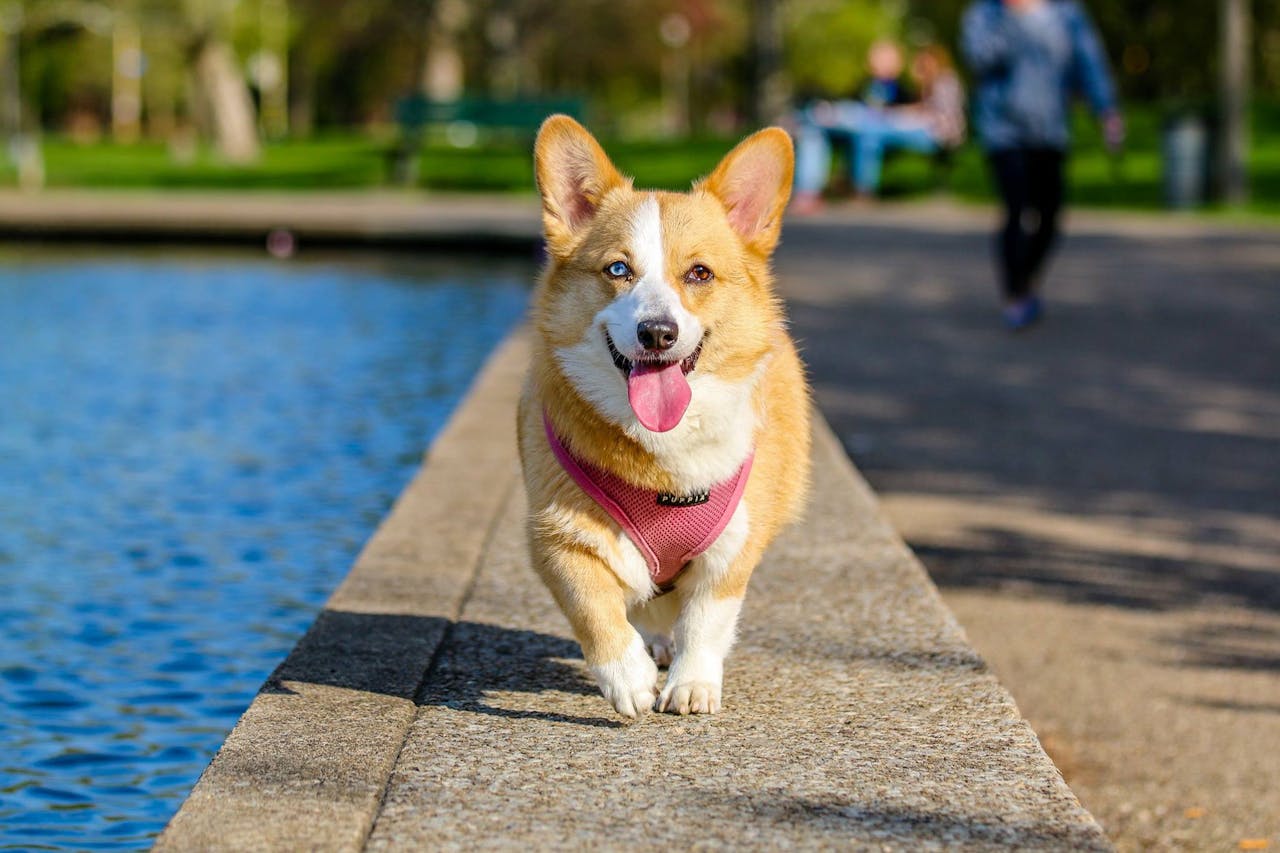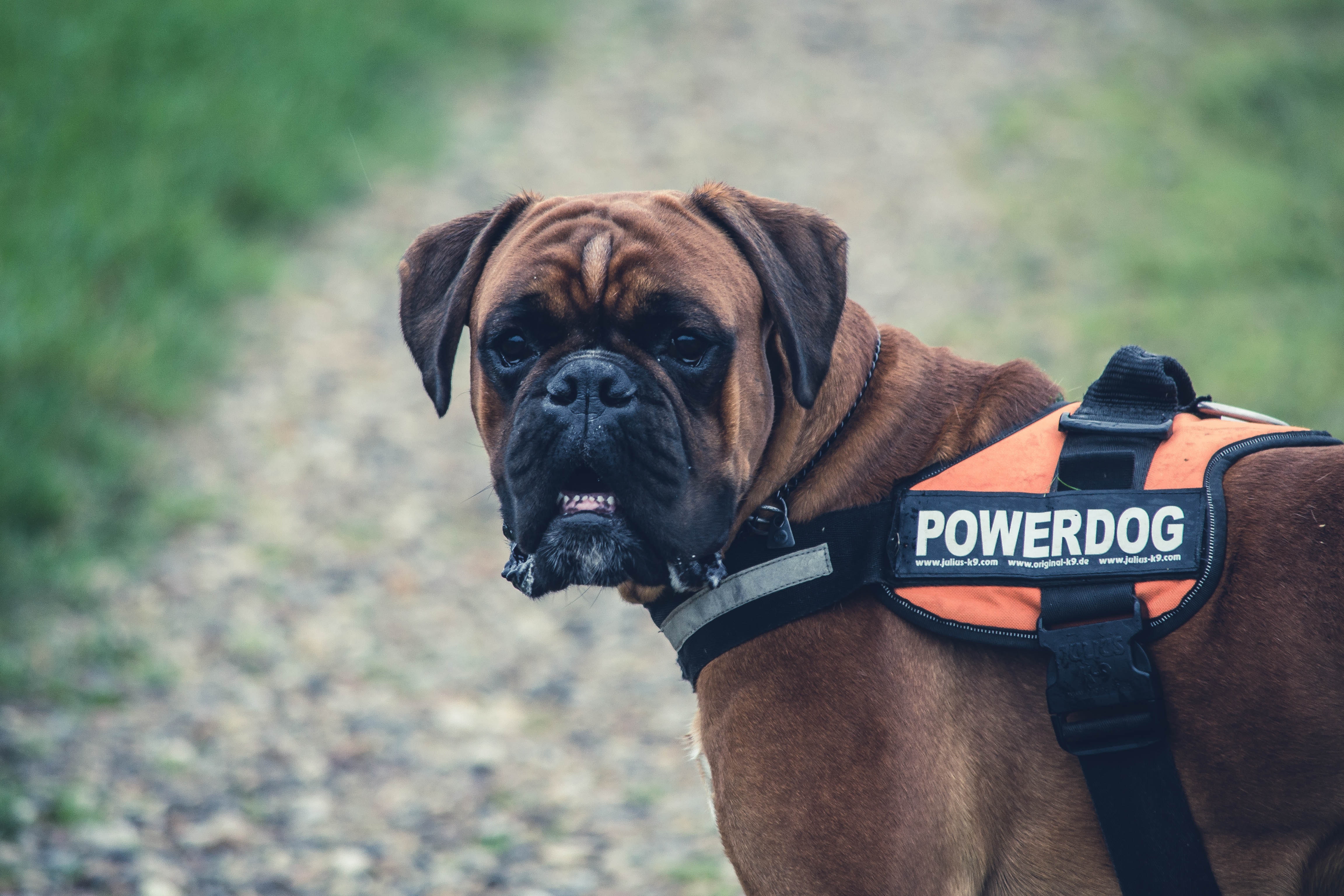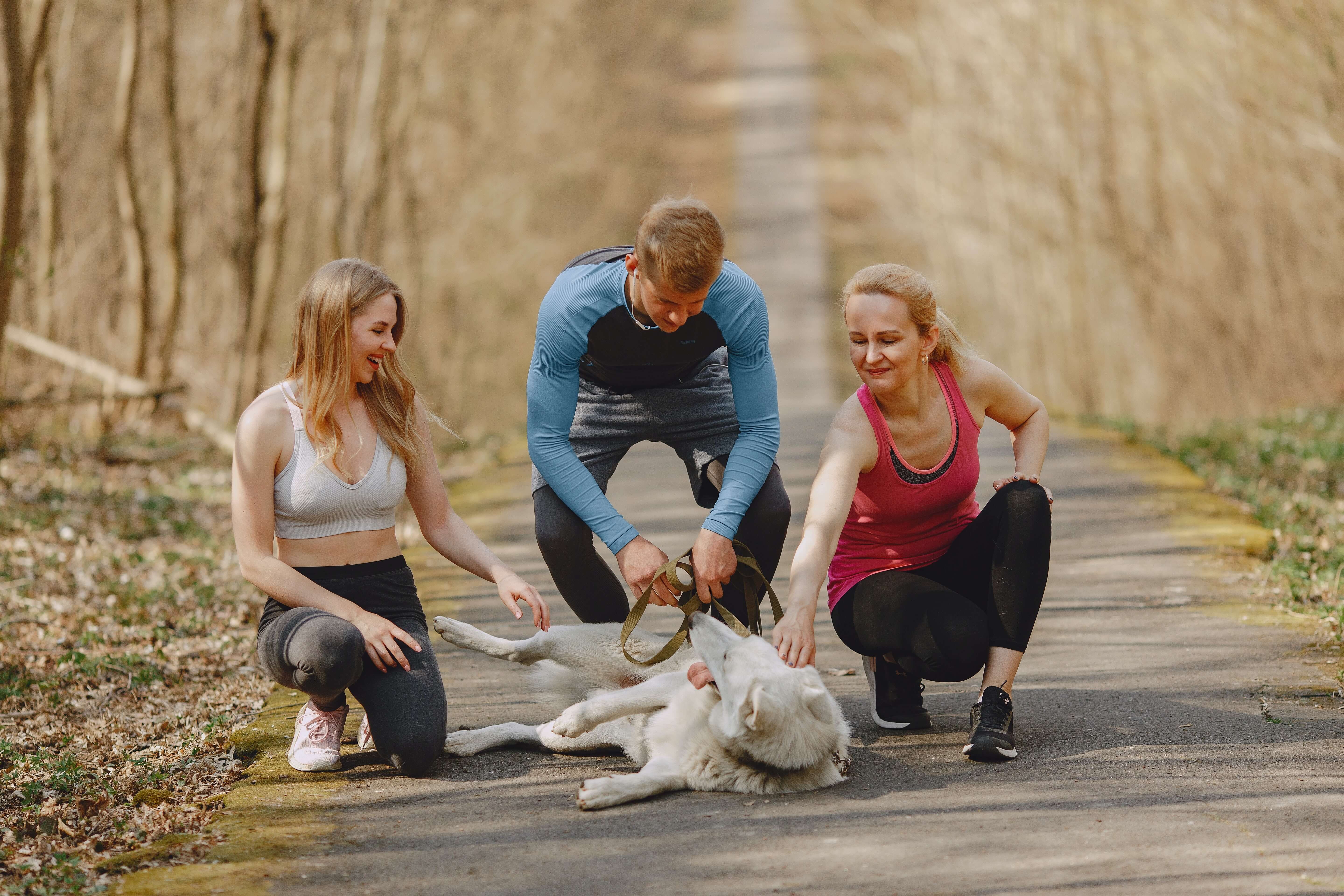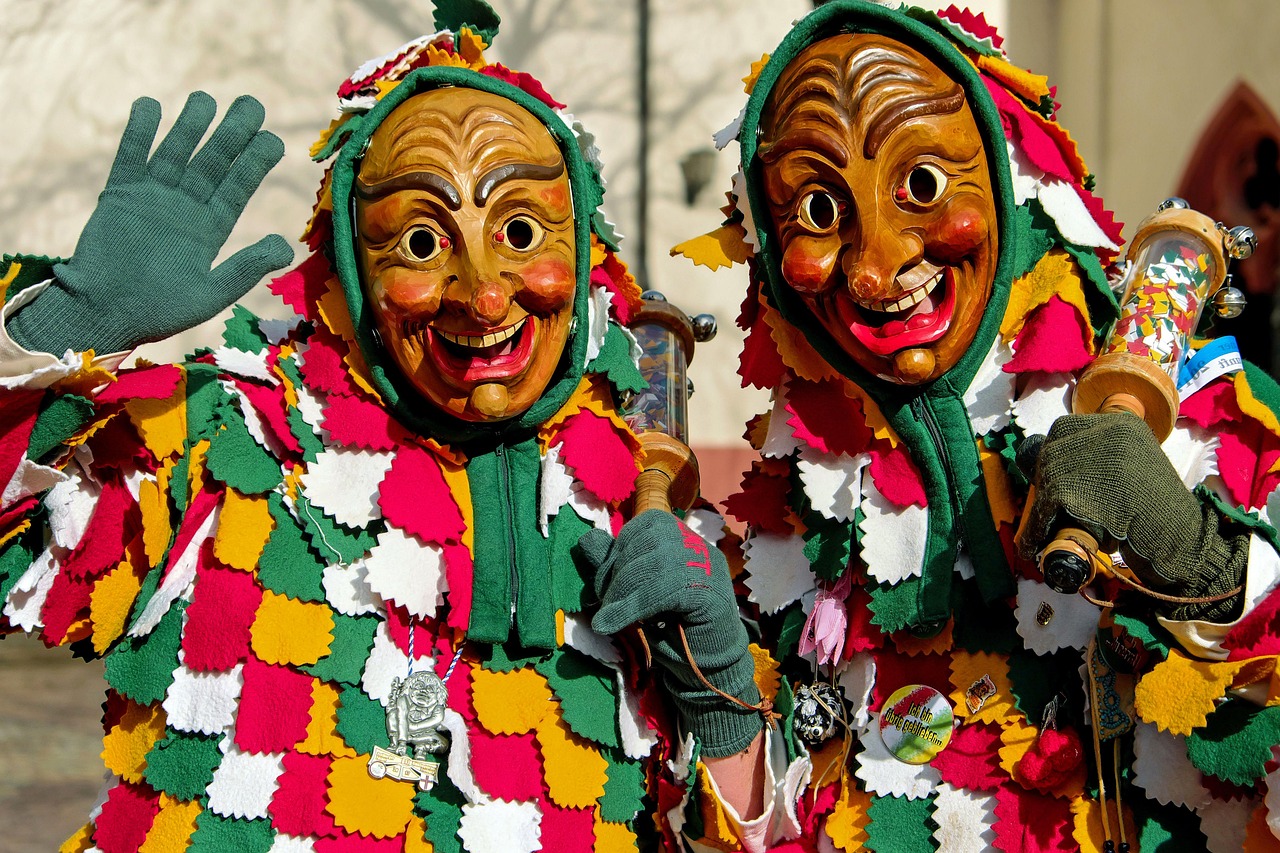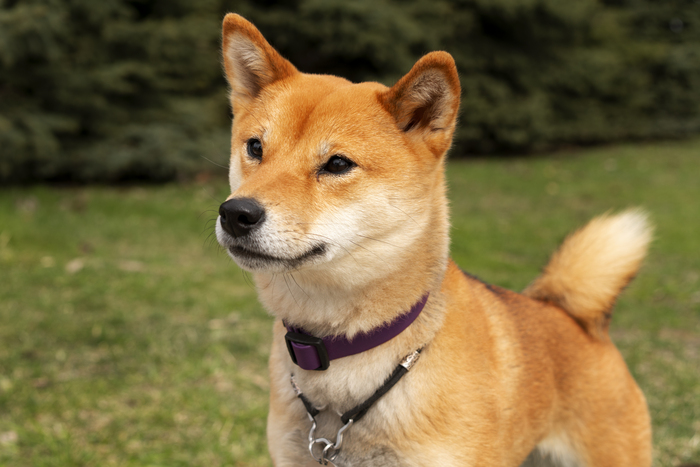
Service animals-loyal support, loving companions, medical equipment... We can describe these amazing dogs in many ways. Regardless of the particular wording, there is one thing that is undeniable-their help is invaluable!
Becoming a service animal is not a task that every dog can do. This is a long process that requires a lot of work and patience but also a dog who has the right temperament to become a service animal. Every dog has their individuality, but certain characteristics need to be present, such as trainability, eagerness to please the owner, friendly personality, calm demeanor, and intelligence.
We’ve decided to take a look at a popular dog breed which is also the number one companion dog breed in Japan, namely the Shiba Inu. If you are interested in learning more about the breed’s characteristics and the potential of its representatives to be trained as service animals, you should keep reading.
History
The breed originates in Japan where its representatives were bred as hunting dogs to flush game. The name of the breed means “brushwood dog". This is the smallest breed of the six Spitz dog breeds that originate in Japan- Shiba Inu, Kai Ken, Akita Ken, Kishū Ken, Hokkaidō Ken, and Shikoku Ken. Although the Shiba Inu looks very similar to other dog breeds such as the Akita Inu, it is a different one and must not be mistaken.
Physical Features and Lifespan
The Shiba Inu is a dog breed that belongs to the non-sporting group and whose representatives are of a small-to-medium size. Male dogs can reach up to 14.5 inches -16.5 inches / 36.8 cm / 41.9 cm in height, while female dogs can reach up to 13.5 inches - 15.5 inches / 34.3 cm - 39.4 cm.
These canines are double-coated, and their beautiful coat is available in several color variations such as Cream, Black & Tan, Sesame, and Red. Some representatives have white markings.
The Shiba Inus are moderate to high shedders, who shed more heavily twice a year.
The lifespan of the breed is about 13–16 years.
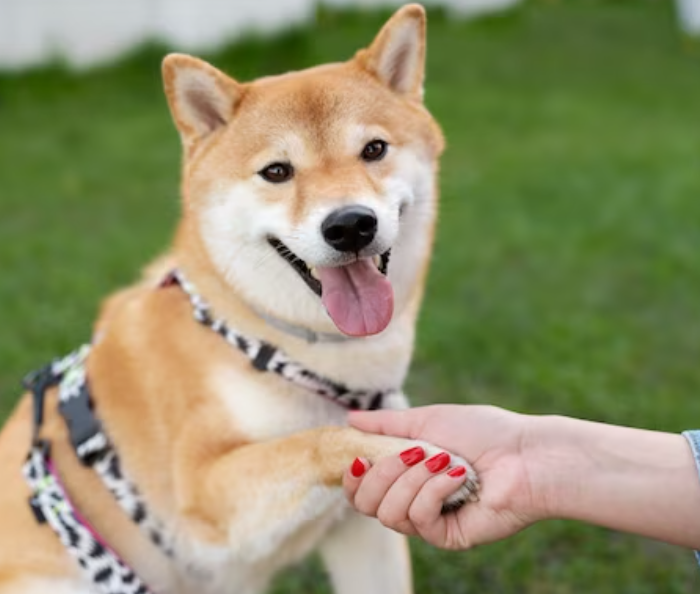
Temperament
The dogs of the Shiba Inu breed are known for their loyal nature and the strong bond that they develop with their owners. They are loving and affectionate, which makes them great family dogs.
An important question that some of you may ask is- are these dogs good with children? They are considered rather tolerant of children, which makes them great companions for children. If you raise a doggy of this breed from a puppy and socialize them properly, they can develop a very strong bond with your child! The Shiba Inu dogs are usually calm.
Also, they are not of a big size, which is also an advantage compared to large dog breeds, which could injure a small child by accident.
Possible disadvantages of the cohabitation between a dog of the Shiba Inu breed and a child may be caused by the tendency of these dogs to be a bit independent. Some representatives of the breed might not be patient enough to tolerate rough handling or having their food or toys taken by a child.
Having a protective nature and showing resource guarding may be behavioral issues you will need to deal with.
If your paw friend has a rather independent nature, it is crucial that you train them in basic obedience and socialize them properly. Teaching your child how to interact with the dog is also essential.
When it comes to the social skills of these dogs when interacting with other dogs, we would say that they can be a bit bossy. Showing a dominant nature could lead to potential issues. However, this is not common in all dogs of this breed. Many representatives can be friendly and easy-going.
The Shiba Inu dogs are known as energetic dogs who need physical and mental stimulation. Their energy levels do not go to extremes though, but are rather moderate to high.
If you choose a dog of this breed as your pet, especially if you are thinking about training them as a service animal, you will need to invest time to exercise your canine, play with them and train them. Smart and energetic dogs can become destructive or develop other types of issues if not provided with enough mental and physical stimulation.
The canines of the breed are not known as barkers, but rather as calm dogs. Your paw friend is likely to bark only occasionally, so you should not worry about your dog being too vocal.
Social Aspects
Shiba Inus are not typically very friendly to strangers, as they do not perceive them as a part of their pack. Also, their independent nature may contribute to their somewhat reserved behavior.
The tendency to be protective makes these canines great watchdogs!
Luckily for you, your dog of the Shiba Inu breed is likely to be playful and inquisitive, enjoying all the fun games you may want to play with them. As mentioned, these dogs are intelligent, so playing interactive and mentally stimulating games with them, will be appreciated.
The Shiba Inu dogs are not only playful and active, but also very adaptive dogs. If you provide them with enough love and mental stimulation, they may feel comfortable living in an apartment setting.
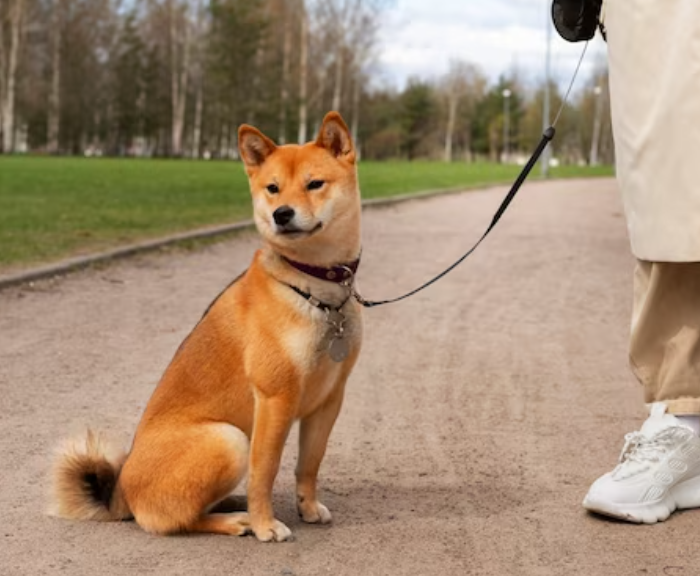
Trainability and Service Dog Potential
These dogs are very intelligent, loyal, and alert, which are important qualities for a dog to become a good service animal! So, simply put-yes, they have the potential to become excellent service animals.
There is a "but"... Their stubbornness and independent nature can bring a lot of challenges to those of you who are not experienced in dog training. If you strive to succeed, you will have to have the right approach toward your dog, by starting training and socialization from a young age and being very persistent.
If you would like to train a Shiba Inu for the benefit of another person or people (e.g. as therapy animals), some difficulties may occur. Since these dogs are very loyal to their owners and not quite affectionate toward strangers, it is recommended that the owner is actively engaged in the training. However, the role of a companion animal supporting other people is not common for these dogs.
People who want to train their pet dogs of that breed as service animals, need to be very confident in their skills and not let their Shiba Inu dominate them.
We would like to note that dogs of the same breed can show different traits, so whether a canine is suitable for service dog work or not, varies from dog to dog. If you want to figure out whether your paw friend has the temperament to become a service animal, you should:
-Consistently train them in basic obedience and monitor their progress; Remember to not force the process and give your dog time to adapt to the tasks you want them to perform;
- Train them on a regular basis; Dogs, who tend to be independent require regular training sessions and a schedule to be followed;
- Socialize your dog-start at a young age, and try to expose your dog to various environments, people, situations, and sights;
-Travel with your dog-you can take your paw friend for regular car rides or on public transportation; All these situations will provide your dog with an experience and let them meet and get used to the presence of different people and animals.
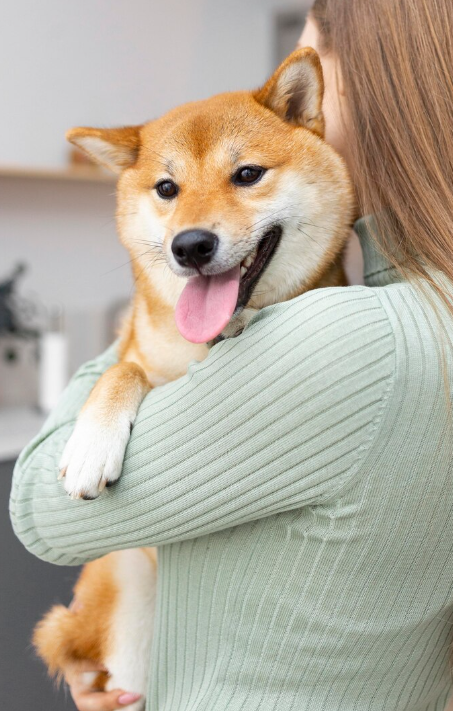
What to Consider Before You Get a Shiba Inu?
Prior to opting for a dog of that breed, you should make sure that you are ready to be understanding, patient and persistent with the training.
Your paw friend is likely to have a very strong bond with you, but be rather shy of strangers.
These canines are usually very smart and stubborn, so if you are looking for a cuddly couch potato, that will do everything to get your attention, this may not be the right dog for you. The Shiba Inu dogs are more suitable for people with some experience in terms of dog raising and/or training.
You should make sure that you have the time and energy needed to engage in a training process.
Socialize your doggo from a young age to avoid any issues when interacting with other dogs or people in the future.
As mentioned above, the Shiba Inu is a moderate to high shedder, so this is a factor to consider, especially if you or your family members are allergic to dog fur.
Raising and training a Shiba Inu can have both positives and negatives. The training process can be challenging, so you will need to show your skills as a handler. If you are motivated, understanding of your dog, and patient, you can help them go through the training process and become an amazing service dog!


